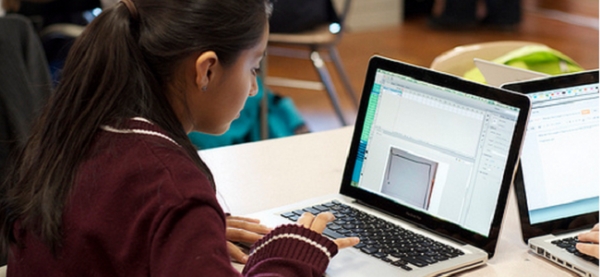"Worldreader aims to change that, providing e-books that attract over 250,000 readers a month who read 20 millions pages between them."
For a start, telecommunications has changed the way in which we can access information and those who can help us learn. UK-registered charity WeFarm is a great example of this - using simple SMS it links farmers in Africa, Latin America and Asia to share challenges and solutions in managing their small holdings. Without a formal education system to support them, this rapidly growing network is creating a massive community of learners who are able to use their new connections to develop their understanding and practice way beyond geographic and language barriers. Imagine if we can tap into that type of community to extend and deepen the learning within our classrooms.
Worldreader is another example of how well designed digital technology can provide access to important education resources. In sub-Saharan Africa, one third of adults cannot read and half the schools have no books. Worldreader aims to change that, providing e-books that attract over 250,000 readers a month who read 20 million pages between them. Some of these pages are children’s stories and other fiction, others are life-saving information on Ebola. The ability to access such incredible and vital content is an important step in learning.
Of course, mediating that content - getting support from expert teachers - is another vital part of learning, and edX does just that. edX is a leading example of a Massively Open Online Course (MOOC), but more than providing access to great educational content, EdX is a collaborative laboratory enabling learners to work together. The technology that enables online collaboration, questioning, support and teaching are being used on a massive scale – 675,000 students in its first year alone.
There are others that show incredible tech-enabled practice in the UK. CoderDojo, the volunteer-based movement of 550 coding clubs, has both provoked and harnessed the growing interest in digital making; Minecraft Edu supports young people to learn all sorts of subjects while playing the incredibly popular Minecraft game (which has over 50m active players). Digital Explorer creates immersive learning experiences that link students to expedition teams in the field, training over 600 teachers to use Google Earth in the classroom. Open Badges, meanwhile, point at how classroom experiences can link effectively with more digital approaches by bringing local businesses and non-school activities into a richer educational offering – and perhaps lead to the more open and inclusive examples noted.
Google handles over 100 billion searches a month. While many of those might be seeking out pictures of cute cats, there’s no doubt that digital technology has changed the way in which we look for, find and make sense of information. The number of online communities that live alongside (or in place of) physical communities continues to rise, and the range of incredible resources at our disposal – from cheap 3D printers to low-cost sensors to massively powerful computers – is remarkable. If looking back at 2014 shows some inspiring examples of education technology, I hope that 2015 continues to present opportunities to make more of them in the UK, both inside and outside the classroom.
How are you utilising digital learning in the classroom? Let us know in the comments.


















